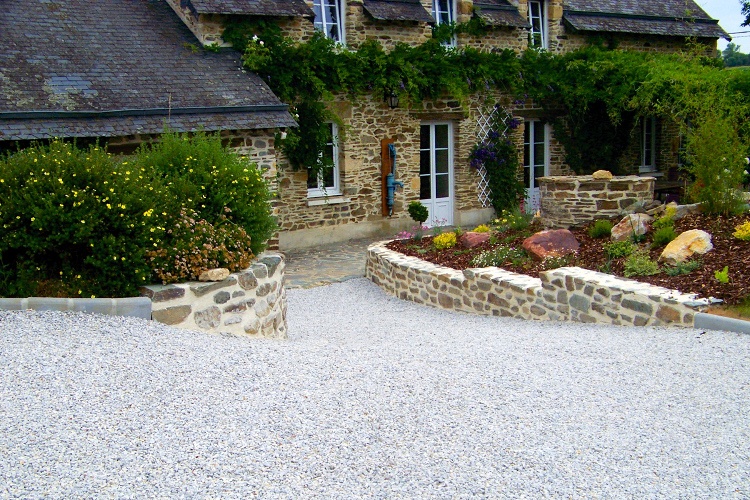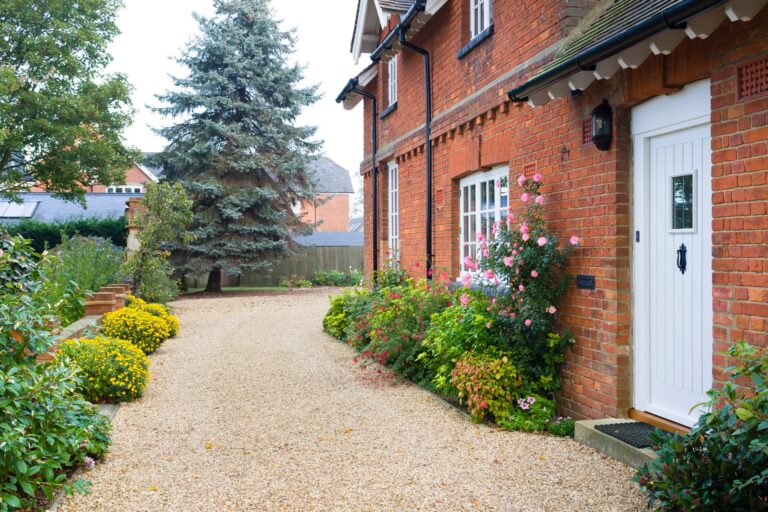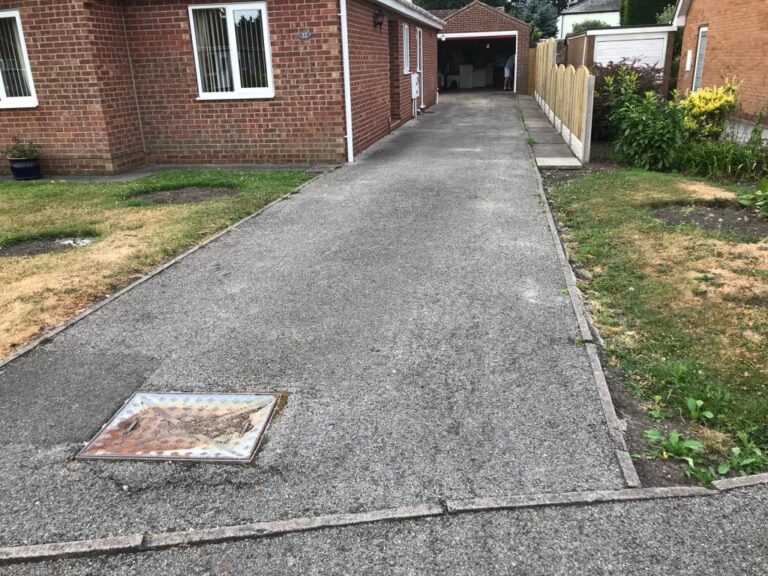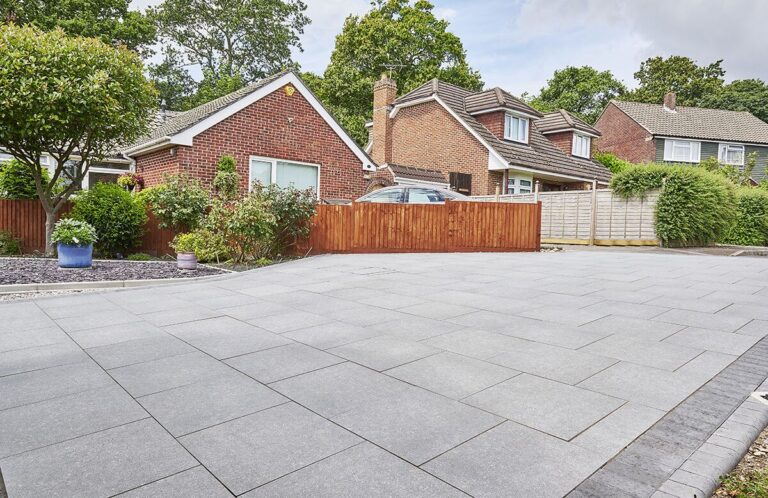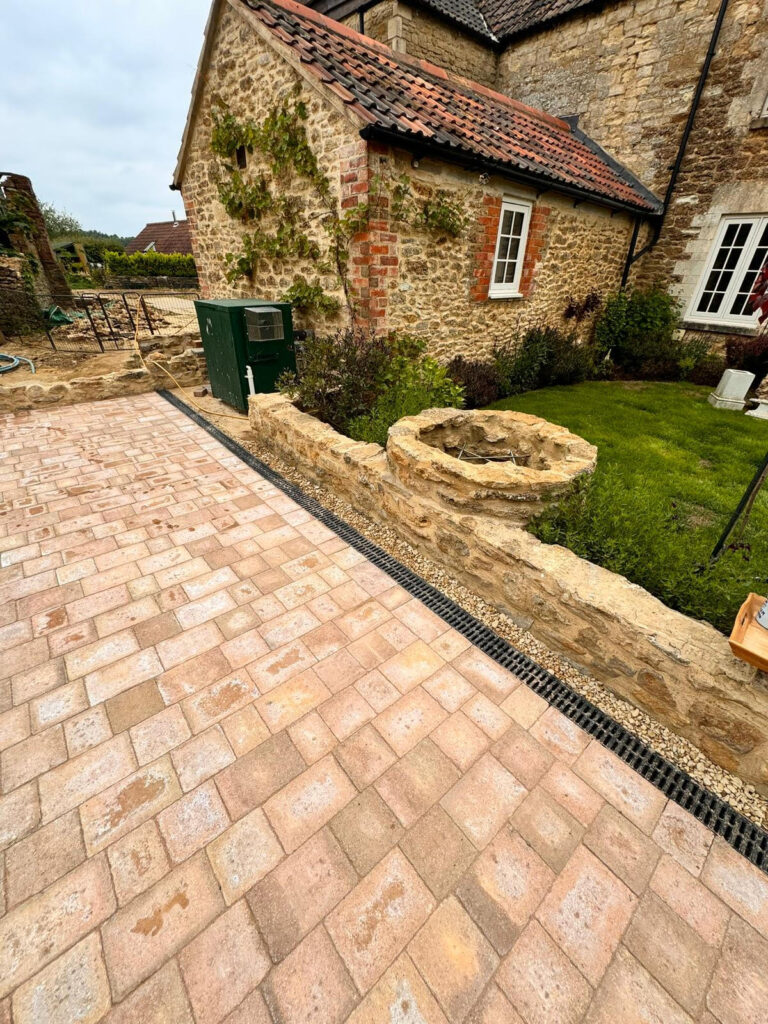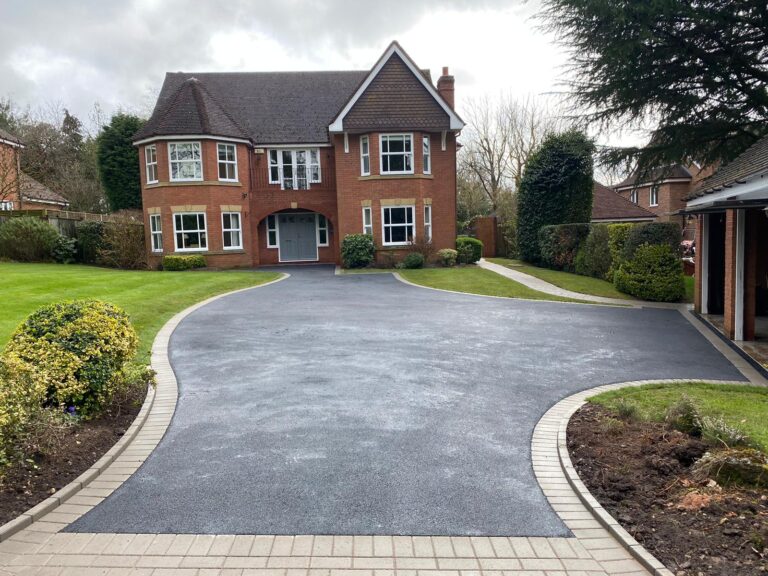Gravel driveways are a popular choice for many homeowners across the UK due to their affordability, versatility, and rustic charm.
Whether you’re looking for an economical solution or prefer a more natural, traditional appearance for your home, gravel can be a great choice.
However, like any driveway material, gravel comes with its own set of pros and cons that should be considered before making a decision.
Let’s explore the advantages and disadvantages of gravel driveways, along with some maintenance tips to keep them in top condition.
The Pros of Gravel Driveways
1. Cost-Effective
One of the biggest draws of gravel driveways is their affordability. Gravel is typically much cheaper to install compared to other materials such as block paving or tarmac.
The cost can vary depending on the type of gravel you choose, but overall, it remains one of the most budget-friendly options available.
Additionally, the installation process is less labour-intensive, which further reduces the cost compared to more complex materials.
2. Quick Installation
Gravel driveways can be installed relatively quickly, especially when compared to materials like block paving or resin-bound driveways.
Since gravel is easy to lay down, the installation time is usually shorter, and in many cases, it can be completed in a day or two, depending on the size of the area.
This can be particularly beneficial if you need to upgrade your driveway in a hurry.
3. Low Maintenance
Gravel driveways require relatively little maintenance.
Unlike block paving, which can become clogged with weeds between the joints, gravel naturally prevents weed growth due to its loose surface.
If weeds do appear, they can usually be pulled up easily.
Additionally, gravel doesn’t require regular sealing like tarmac, so once it’s laid down, it doesn’t need much attention.
4. Drainage
Gravel is a permeable material, meaning water can easily pass through it.
This makes gravel driveways an excellent option for preventing flooding and standing water.
The natural drainage properties of gravel help reduce surface water runoff, which is especially beneficial in areas with heavy rainfall, like the UK.
This permeability can also help you comply with regulations regarding surface water drainage.
5. Versatility and Aesthetic Appeal
Gravel offers a wide variety of options in terms of colour, texture, and size, allowing homeowners to create a unique look that complements their home’s style.
Whether you prefer a sleek, modern design or a more traditional, country-inspired look, there is a gravel type to suit your needs.
The aesthetic versatility of gravel can make it an appealing choice for many different property types.
The Cons of Gravel Driveways
1. Maintenance of Appearance
While gravel is low-maintenance in terms of upkeep, it can sometimes look untidy if not properly managed.
Over time, the gravel may become displaced due to traffic, leaving bare patches that detract from the overall look of the driveway.
Regularly topping up the gravel and re-leveling the surface can help prevent this issue, but it’s something to keep in mind if you want to maintain a pristine appearance.
2. Loose Stones
One of the most common complaints about gravel driveways is the loose stones.
Gravel can shift around easily, especially if it is used for a large surface area or in areas with high vehicle traffic.
This can lead to the stones spreading out onto the surrounding paths or garden, which can be an inconvenience and potentially hazardous.
This issue is particularly noticeable with smaller gravel sizes, which tend to spread more easily than larger stones.
3. Weed Growth
Though gravel can naturally suppress weeds, they can still sometimes find their way through the surface, particularly if the driveway isn’t laid on top of a weed-proof membrane.
If weeds do appear, they can be a bit more difficult to remove compared to other materials like tarmac or resin, which have a solid surface that doesn’t allow weeds to penetrate.
4. Not Ideal for All Driveways
Gravel driveways may not be suitable for every home.
If you have a steep slope, gravel can shift or wash away, causing uneven surfaces that are difficult to drive on.
Similarly, if your driveway is used by larger vehicles, such as vans or trucks, the gravel may compress or shift more easily under the weight, leading to the need for more frequent maintenance.
5. Weeds and Moss Growth in Wet Conditions
In the damp UK climate, gravel driveways can sometimes encourage moss growth, particularly in shaded areas where water collects.
This moss can be slippery and make the driveway less safe to walk or drive on. Regular cleaning and occasional moss treatments are needed to keep it under control.
Maintenance Tips for Gravel Driveways
To ensure your gravel driveway remains in good condition, there are a few simple maintenance tasks to consider:
- Replenish Gravel Regularly: Over time, gravel can become compacted and lose its freshness. It’s important to top up the gravel to maintain an even surface and restore its appearance.
- Weed Control: Use a weed-resistant membrane under the gravel to minimise the growth of weeds. You can also use a weedkiller or manually remove any weeds that pop up.
- Rake and Level the Surface: Regularly rake the gravel to level the surface and keep the stones evenly spread. This will help avoid the creation of ruts or uneven areas.
- Pressure Washing: If moss or dirt accumulates on the gravel, pressure washing can help clean the surface. Just be cautious not to displace too much gravel during cleaning.
Gravel driveways offer a range of benefits, from cost-effectiveness to aesthetic versatility, making them an appealing choice for many homeowners.
However, the loose nature of gravel and the potential for maintenance issues means they may not be the right choice for everyone.
With proper care and regular attention, gravel driveways can serve as a long-lasting, functional, and attractive addition to your property.

